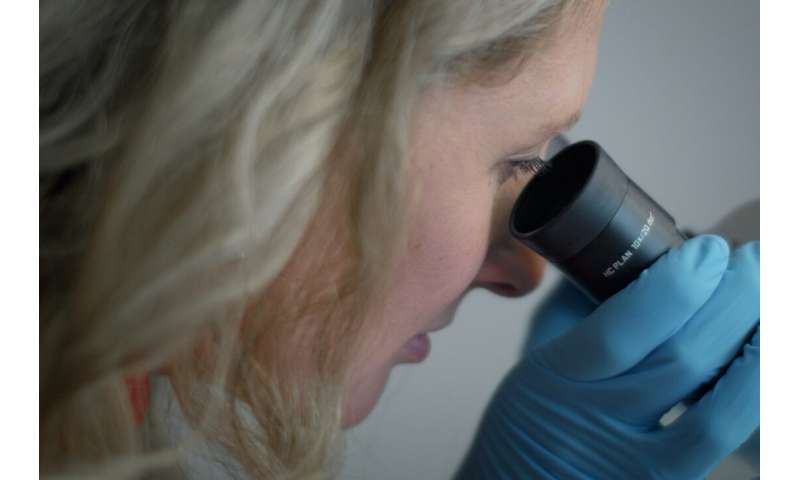
Scientists at RCSI University of Medicine and Health Sciences have developed a new biomaterial that has the potential to accelerate bone regeneration by promoting an immune response that encourages repair and lowers the risk of inflammation.
The study, conducted by researchers at RCSI Tissue Engineering Research Group (TERG) and AMBER, the SFI Research Centre for Advanced Materials and BioEngineering Research, is published in Acta Biomaterialia
The researchers have developed a technology that is a combination of nanoparticles and a collagen-based biomaterial called a scaffold, specifically designed by RCSI TERG that can be surgically implanted to aid bone tissue repair. The material allows for the delivery of a microRNA silencer, a molecule capable of influencing the way our cells function.
In laboratory conditions, researchers successfully demonstrated that damaged bone tissue is restored as the particular microRNA delivered by the biomaterial works to increase cells responsible for bone repair. The technology also assists in promoting a pro-repair immune system response, lowering the risk of inflammation and other complications.
“The results of our research are a promising step towards improving health outcomes for patients with fractures that fail to repair naturally or have degenerative bone diseases such as osteoporosis, although further pre-clinical and clinical trials are still required before the technology could be used to treat humans,” said Dr. Caroline Curtin, Lecturer in Anatomy and Regenerative Medicine at RCSI.
Source: Read Full Article
